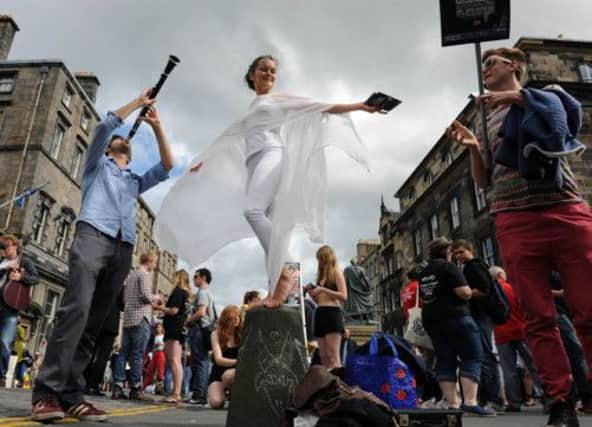Brian Ferguson: Class wars don’t describe Fringe


Last week theatre producer Pippa Bailey seemed to have her sights set on many of the same targets that Lee fired at 12 months previously.
The Fringe has never struck me as a battleground on which to wage a class war, but that is what it has become to some.
Advertisement
Hide AdAdvertisement
Hide AdLee and Bailey – who move in different artistic circles – believe the way the Fringe operates not only reflects Britain’s broken economy, but needs to be dismantled to ensure a fairer deal for all and a return to the event’s utopian past.
Lee was clear who was to blame for the “grotesque Philip K Dick-style wasteland of alcohol-banner festooned architecture around Bristo Square”. Charlie Wood and Ed Bartlam, the driving force behind Underbelly’s ever-expanding group of venues, were dubbed a “Cameron and Osborne duo” and an Etonian cabal at the heart of the “cultural bankruptcy of late capitalism” on the Fringe.
Bailey, former producer of the Total Theatre Awards, was careful not to name names in her call for a rethink over “a monstrous machine suffocating artists and shows in its absolute excess”.
But who was to blame for this, and a growing culture of elitism, despite the gulf in class, money and status between the Fringe and the Edinburgh International Festival, as Bailey would have it?
Not the Fringe itself, or Festivals Edinburgh, both run in recent years by women, but the “posh English blokes who run most of the major venues”. She added: “Edinburgh is very white and middle-class; the big venue bosses are predominantly white men.”
The Fringe as described by Lee and Bailey is far removed from the one I experience each year – but I’m not a stand-up comic, venue manager or show producer, though it is tempting to dismiss their contributions as over-the-top hysteria. Does the entire Fringe revolve around Bristo Square? I don’t see it.
A good case could be made that there is now a more level playing field than at any time during the last decade. It appears far removed from a closed shop.
New venues like Summerhall, Paterson’s Land, Northern Stage, the relocated Famous Spiegeltent on George Street, and the return of Forest Fringe to a new home in Leith have opened up a host of new opportunities for audiences and performers. If the ideas, talent and ambition are there, the current Fringe is surely able to accommodate them.
Advertisement
Hide AdAdvertisement
Hide AdThen there is the sheer volume of shows staged under the banners of the Free Fringe and Free Festival, which make comedy accessible to those on the tightest of budgets.
But for all their chippiness, Lee and Bailey made a number of important points which Fringe venues and administrators should not dismiss. The whole concept of the branding of the Edinburgh Comedy Festival was – and is – an ill-thought-out idea. The pretence that the only comedy worth seeing was in venues run by the “big four” promoters should have been killed off years ago.
Lee’s rallying call for audiences – and the media – to indulge in more “off-piste grazing” is difficult to argue with, as is his questioning of the whole idea of comedians having to pay to perform at the Fringe – as much as £10,000, seemingly.
Action to burst the property bubble around the Fringe and the curbing of the soaring costs for venues and performers that appear to have risen in the face of the downturn seems overdue.
Promoters I spoke to about Bailey’s views acknowledged she had hit the nail on the head with many of her arguments – even if they were weakened by her more inflammatory comments. She has also apologised for neglecting Karen Koren’s stewardship of Gilded Balloon from her critique of the event’s male-dominated bias.
While I note William Burdett-Coutts’s recent call for old Fringe rivals to bury the hatchet this year, it would be no bad thing if some of the issues above were discussed in public.
There is a worrying lack of open debates planned about the festivals this year, but at least the Fringe is stepping up to the plate at last, with the creation of an “opening address” to participants.
I suspect playwright Mark Ravenhill, who will deliver the address, will serve up plenty more food for thought at the end of the week, when the Fringe gets under way – and the real fun begins.